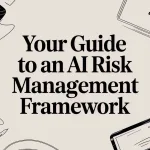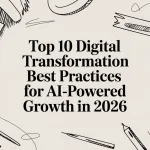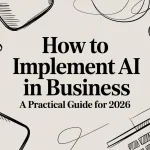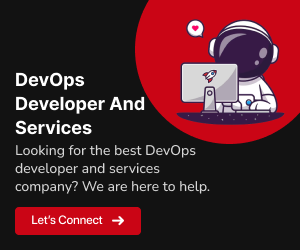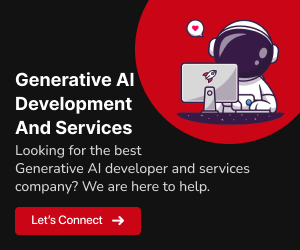In today’s rapidly evolving business landscape, staying competitive requires companies to embrace cutting-edge technologies. One such technology that has gained significant traction in recent years is generative artificial intelligence (AI). Generative AI has the potential to revolutionize various aspects of business operations, from customer engagement to decision-making. In this blog, we will delve into the ways generative AI can help improve business outcomes and explore real-world applications across different industries.
Enhancing Customer Engagement
Before we delve into the specific applications of generative AI, let’s explore how this transformative technology is enhancing customer engagement across industries.
Personalized Content Creation:
Generative AI can analyze vast amounts of customer data to create personalized content. Whether it’s crafting tailored marketing messages, product recommendations, or even content for social media, AI can generate content that resonates with individual customers. This level of personalization can significantly boost customer engagement and increase conversion rates.
Chatbots and Virtual Assistants:
AI-powered chatbots and virtual assistants are increasingly being used to provide instant customer support. These chatbots can understand and respond to customer queries in real-time, enhancing the overall customer experience. They are available 24/7, ensuring that customers receive assistance whenever they need it.Dynamic Email Marketing:
Generative AI is transforming email marketing by creating personalized and dynamically updated email campaigns. AI analyzes customer behavior and preferences to send targeted, relevant content at the optimal time. This approach increases email engagement, click-through rates, and conversion rates.Voice Assistants:
Voice-activated AI assistants, like Amazon’s Alexa and Apple’s Siri, leverage generative AI to provide seamless and personalized experiences. They assist customers with tasks, answer questions, and even make purchase recommendations, making customer engagement as simple as a voice command.
Streamlining Operations
As we delve deeper into the profound impact of generative AI, we find its applications extend well beyond customer engagement and decision-making. In this section, we’ll explore how generative AI is streamlining business operations, introducing efficiency and foresight that redefine industry standards.
Automated Data Entry and Analysis:
Generative AI can automate data entry tasks and perform data analysis at a scale that humans cannot match. This can lead to more efficient decision-making, as executives can access real-time insights and trends to inform their strategies.
Predictive Maintenance:
In industries like manufacturing and logistics, generative AI can predict equipment failures and maintenance needs. By analyzing data from sensors and historical records, AI can identify when machinery is likely to break down, allowing companies to schedule maintenance proactively, reduce downtime, and save on repair costs.
Supply Chain Optimization:
Generative AI is becoming the linchpin of supply chain optimization, a critical area for businesses aiming to enhance efficiency and reduce costs. By analyzing historical data, demand forecasts, and real-time information from various nodes along the supply chain, AI algorithms can predict demand fluctuations, identify potential bottlenecks, and optimize inventory levels. This translates to reduced warehousing costs, minimized stockouts, and smoother logistics operations.
Human Resources Transformation:
Generative AI is redefining Human Resources by automating and enhancing various HR processes. AI-driven systems are now used for candidate screening, where they analyze resumes and applications to identify the most suitable candidates for job positions, thus saving time and reducing bias in the hiring process. AI-powered chatbots are providing instant responses to employee inquiries, improving the overall employee experience.
Accelerating Innovation
Innovation is the lifeblood of any business striving to stay ahead in today’s dynamic landscape. Generative artificial intelligence (AI) has emerged as a catalyst for innovation, offering creative insights and expediting the design and development process. In this section, we’ll explore how generative AI accelerates innovation in two distinct ways.
Idea Generation:
Generative AI can assist in brainstorming and idea generation. By analyzing existing data, market trends, and consumer preferences, AI can suggest new product ideas or improvements to existing ones. This can significantly reduce the time and effort required for innovation.
Prototyping and Design:
AI-powered design tools can generate product prototypes and design concepts quickly. This enables businesses to iterate and refine their products faster, reducing time to market and increasing competitiveness.
Market Analysis and Trend Forecasting:
Generative AI isn’t just limited to idea generation and design; it can also significantly impact innovation through market analysis and trend forecasting. By analyzing vast datasets of market trends, consumer behavior, and competitor strategies, AI can help businesses identify emerging opportunities and threats. This enables companies to make proactive decisions and pivot their innovation efforts towards areas with the highest growth potential. Generative AI provides a data-driven compass that guides innovation strategies, ensuring they align with market dynamics.
Automating Research and Development:
The research and development (R&D) phase of innovation is often resource-intensive and time-consuming. Generative AI can streamline this process by automating various aspects of AI algorithms can scan academic papers, patents, and scientific databases to identify relevant research, cutting down the time required for literature review. Additionally, AI-driven simulations and experiments can accelerate the testing and validation of new ideas, reducing the costs associated with traditional methods. By automating and expediting, generative AI enables businesses to bring innovations to market faster, gaining a competitive edge.
Improving Decision-Making

In the realm of improving decision-making, generative artificial intelligence (AI) stands as a beacon of precision and foresight. By harnessing the power of data and predictive capabilities, AI empowers businesses to make informed choices, optimize strategies, and navigate complex challenges with confidence. In this section, we’ll delve into two primary ways generative AI enhances decision-making, along with two additional facets of this transformative capability.
Data-driven Insights:
Generative AI’s prowess in analyzing vast datasets equips executives with invaluable data-driven insights. These insights serve as the compass guiding strategic decisions, market positioning, and resource allocation. By deciphering complex patterns and trends, AI illuminates the path towards more informed and successful business strategies. In an era defined by data, this capability is nothing short of indispensable.
Scenario Planning:
AI takes decision-making a step further through scenario planning. By simulating diverse scenarios, AI assists businesses in preparing for contingencies. Whether it involves forecasting sales under varying market conditions, evaluating the consequences of operational changes, or assessing the impact of external factors, AI offers a robust platform for businesses to explore and understand potential futures. Armed with these insights, organizations can make proactive decisions and adapt swiftly to changing circumstances.
Risk Assessment and Mitigation:
Generative AI’s ability to assess risks and propose mitigation strategies is invaluable in industries prone to uncertainties. By analyzing historical data and market conditions, AI can identify potential risks and vulnerabilities within a business strategy. Moreover, it can recommend risk mitigation measures, allowing companies to proactively address challenges before they escalate into crises. This foresight not only safeguards against potential setbacks but also enhances long-term sustainability and resilience.
Compliance and Regulatory Adherence:
Navigating the complex landscape of regulations and compliance requirements is a critical aspect of decision-making, particularly in heavily regulated industries like finance and healthcare. Generative AI can help businesses stay compliant by continuously monitoring regulatory changes, identifying areas of non-compliance, and suggesting corrective actions. This proactive approach not only reduces the risk of regulatory fines but also fosters trust among stakeholders, strengthening the organization’s reputation.
Also Read : “Harnessing Generative AI for Agile Software Development: A Transformational Approach“
Real world scenarios
Manufacturing:
In the manufacturing sector, generative AI is playing a crucial role in improving product design and production processes. It can generate design alternatives based on specific criteria and constraints, helping engineers and designers explore innovative solutions. Additionally, AI-driven predictive maintenance models help reduce downtime by forecasting equipment failures, ultimately increasing production efficiency.
Automotive:
The automotive industry has been quick to adopt generative AI in the design phase. Engineers use AI algorithms to generate and optimize vehicle designs for aerodynamics, safety, and fuel efficiency. This not only speeds up the design process but also results in more eco-friendly and cost-effective vehicles.
Legal:
Generative AI is also finding its place in the legal profession. AI-driven algorithms can review and analyze vast volumes of legal documents, contracts, and case law to provide lawyers with valuable insights. This helps legal professionals make more informed decisions, predict case outcomes, and streamline the research process.
Content Creation:
In the field of content creation, generative AI is changing the game. It can assist writers by generating draft articles, suggesting creative ideas, and even composing music and poetry. This not only enhances creativity but also saves time and effort in content production.
Education:
Generative AI is making education more accessible and personalized. AI-powered tutoring systems can adapt to each student’s learning pace, providing tailored exercises and explanations. Furthermore, AI-generated educational content can help create diverse and engaging learning materials.
Energy:
The energy sector benefits from generative AI in optimizing energy consumption and distribution. AI algorithms can forecast energy demand, manage grid stability, and even optimize the routing of electric vehicle fleets. These applications contribute to more efficient and sustainable energy management.
Agriculture:
In agriculture, generative AI is used for precision farming. AI analyzes data from sensors, satellites, and drones to provide farmers with insights into crop health, soil conditions, and pest infestations. This data-driven approach allows farmers to optimize resource usage and increase crop yields while reducing environmental impact.
Supply Chain:
Generative AI assists in supply chain management by predicting demand, optimizing inventory levels, and suggesting the most efficient shipping routes. This results in reduced costs, improved customer service, and a more agile supply chain.
Human Resources:
HR departments use AI to streamline recruitment processes. Generative AI can screen resumes, conduct initial candidate interviews, and even recommend suitable candidates for specific job roles. This reduces the time and effort required for recruitment and ensures a more efficient hiring process.
Conclusion
Generative AI is poised to play a pivotal role in the future of business. Its ability to enhance customer engagement, streamline operations, accelerate innovation, and improve decision-making makes it a valuable asset for companies looking to stay competitive in today’s fast-paced business environment. As this technology continues to advance, businesses that embrace generative AI are likely to reap substantial benefits, driving growth and success in the years to come.







